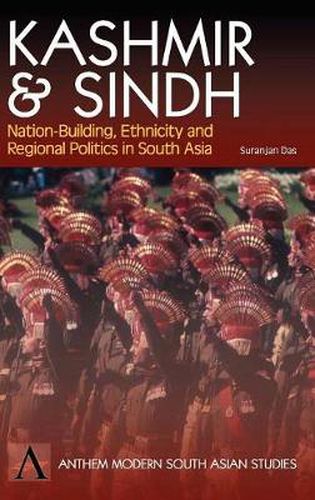Readings Newsletter
Become a Readings Member to make your shopping experience even easier.
Sign in or sign up for free!
You’re not far away from qualifying for FREE standard shipping within Australia
You’ve qualified for FREE standard shipping within Australia
The cart is loading…






This title is printed to order. This book may have been self-published. If so, we cannot guarantee the quality of the content. In the main most books will have gone through the editing process however some may not. We therefore suggest that you be aware of this before ordering this book. If in doubt check either the author or publisher’s details as we are unable to accept any returns unless they are faulty. Please contact us if you have any questions.
Professor Das provides a fascinating study of the issue of ethnic politics in multi-ethnic Third World countries and discusses the non-convergence of state and nation in the context of Kashmir and Sindh. The artificial de-colonization process in the South Asian sub-continent resulted in the construction of national frontiers for its two successor states that did not rest on a synchronization of ethnic and state boundaries. Consequently, cross-border loyalties amongst significant sections of the population survived the boundaries imposed between the two successor states. In the context of centralizing nation-building strategies, when ethnic political assertions occur in outlying or frontier areas of these nation-states, the distinction between domestic and external affairs or between home and foreign politics tends to lose its significance in the traditional sense. Political actors from across the borders of neighbouring states can then deny the marks of their different objective nationalities and treat themselves as members of a single ‘loyalty group’. Thus, ethnic politics transcends its domestic contours and helps foment regional tensions. In such circumstances, ethnic assertions tend to constitute vital local or domestic ingredients that define the national security priorities within a particular region. The current insurrection in Kashmir and turmoil in Sindh superbly demonstrate this pattern.
$9.00 standard shipping within Australia
FREE standard shipping within Australia for orders over $100.00
Express & International shipping calculated at checkout
This title is printed to order. This book may have been self-published. If so, we cannot guarantee the quality of the content. In the main most books will have gone through the editing process however some may not. We therefore suggest that you be aware of this before ordering this book. If in doubt check either the author or publisher’s details as we are unable to accept any returns unless they are faulty. Please contact us if you have any questions.
Professor Das provides a fascinating study of the issue of ethnic politics in multi-ethnic Third World countries and discusses the non-convergence of state and nation in the context of Kashmir and Sindh. The artificial de-colonization process in the South Asian sub-continent resulted in the construction of national frontiers for its two successor states that did not rest on a synchronization of ethnic and state boundaries. Consequently, cross-border loyalties amongst significant sections of the population survived the boundaries imposed between the two successor states. In the context of centralizing nation-building strategies, when ethnic political assertions occur in outlying or frontier areas of these nation-states, the distinction between domestic and external affairs or between home and foreign politics tends to lose its significance in the traditional sense. Political actors from across the borders of neighbouring states can then deny the marks of their different objective nationalities and treat themselves as members of a single ‘loyalty group’. Thus, ethnic politics transcends its domestic contours and helps foment regional tensions. In such circumstances, ethnic assertions tend to constitute vital local or domestic ingredients that define the national security priorities within a particular region. The current insurrection in Kashmir and turmoil in Sindh superbly demonstrate this pattern.